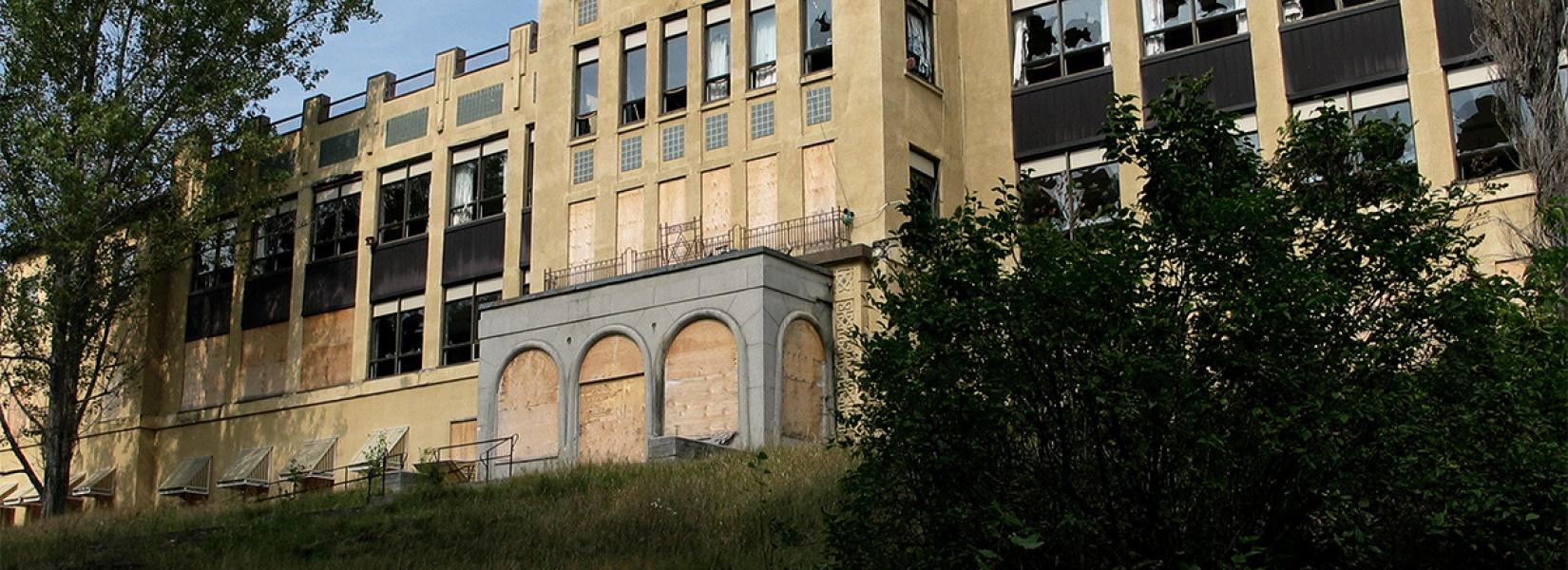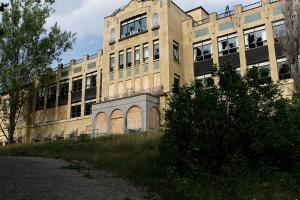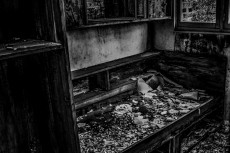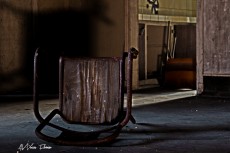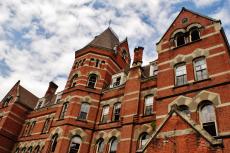Completed in 1883 and funded by a local industrialist, this orphanage for boys has been built during a era marked by poverty and many children abandoned and left to their own end. Launched in 1875, the project was intended as a gift to the city...
The Mount Sinai sanatorium
Tuberculosis, a real scourge
Infected with tuberculosis, the former Jewish hospital was abandoned since 1998. Built in 1930, the building was Art Deco inspiration which was uncommon outside the cities. Was Art Deco inspiration because the building has been demolished in 2005 after a long battle to save it.
Tuberculosis, a real scourge
As old as the world, TB has always existed. Already in antiquity, Hippocrates (fifth - fourth century BC.) mentioned this illness. Infectious disease transmissible by air, it is caused by mycobacteria (bacteria elongated called "stick"). Pulmonary tuberculosis is the most common, but it can reach the bones, kidneys, intestines, genitals and skin.
Before being treated with antibiotics in the 1950s, sanatoriums were built to treat patients with sun cures and outdoor care. This type of treatment was invented by the ancient Greeks.
The Jewish Hospital of Mount Sinai is built in 1909 on a huge land of more than 25 acres (10 hectares). He will be replaced in 1930 by a new building where architects Charles Davis Goodman and David Jerome Spence will impose an Art Deco style. The building offer more than 45,000 square feet on four floors including an auditorium and a chapel. 107 patients could get treatment at the same time.
An avant-garde architecture
So, the building was Art Deco style, an architectural style more prevalent in urban than rural areas. Some people will also tell about this architectural style that fits better with the palm trees of the south to the north.
In addition, various religious symbols were present. From the outside, two menorahs (seven branches' candlestick) are prominently featured above the main entrance. And a large Star of David was decorated the hall. True monument of Jewish history in this region for nearly a century, his backup, although managed by a part of the community of Sainte-Agathe, will finally arrive to an evidence, there is no financial support to buy and save the building.
In 2003, the sanatorium is sold, with the support of the Quebec Government, to the Sainte-Agathe Hospital (CHL) by the Jewish community of Mount Sinai. The latter, which opened a new center in Montreal ten years before, no longer need this old building.
The verdict of the new owners once they get the property's keys? Well, at their eyes, there was only one possible avenue for the old building where the soil is contaminated with coal: demolition. Costs to decontaminate the soil were estimated at one million dollars while the demolition was expected to be half a million dollars. Moreover, the contaminated soil was located under the building, which makes it more complicated for decontamination.
Thus, after two years of negotiations and attempts to save the building from mechanical shovels, the old hospital will finally be demolished in 2005.
Related content
Built in 1875 in the Ahuntsic-Cartierville district located in the north of Montreal, Berri house is Second Empire style and has been part of the development of the sector, which began in the late nineteenth century. The city took possession of...
We are a few months away from the twentieth century. Tuberculosis remains a scourge that we can't control or even contain. The sanatorium which opened in 1899 has two missions. If the first is to treat patients, the second aims to focus on...
Closed in 2003 and now abandoned, the Hudson River State Hospital is a former New York state psychiatric hospital which operated from 1873. Designated a National Historic Landmark due to its exemplary High Victorian Gothic architecture, the first...

